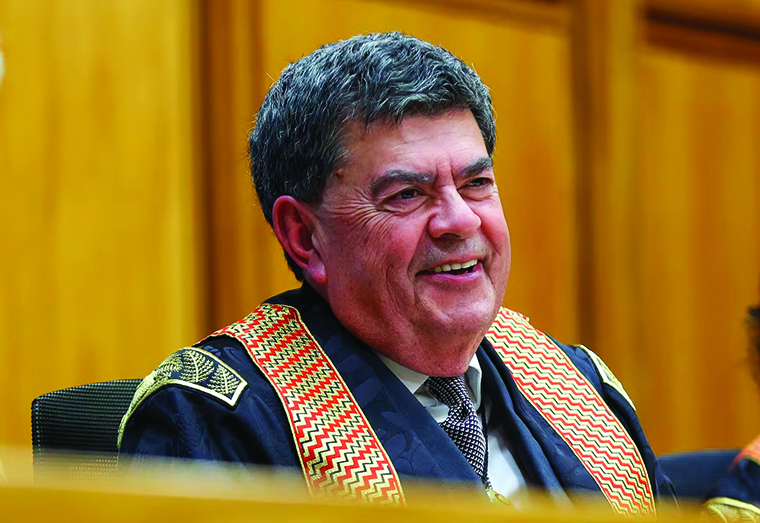Sir Mark Cooper. This highly distinguished and thoughtful man comes across to me as having a very positive and optimistic view of life, particularly in relation to our justice system.
I visited Sir Mark Cooper at his Martinborough home a few weeks after he had received his knighthood and asked him what the award meant to him. After a quiet moment he responded with, “I think it’s a recognition of a job well done but, in particular, for becoming President of the Court of Appeal, this being the pinnacle of my career.” But then he added, “However, to me, undoubtably the major event in my working life was chairing the Canterbury Earthquake Royal Commission of Inquiry.”
I could sense the passion he felt about getting to the truth of why the Christchurch buildings failed, causing so many people to die. He knew that, to be credible, the inquiry needed to be open and the Commission therefore allowed anyone to have a say, particularly the victims’ families. Sir Mark is very proud of what he and the other two Commissioners, both senior engineers, achieved in seeking out the truth and producing their report to the public. As a result, there have been major changes to building design and construction practices throughout New Zealand.
Another achievement Sir Mark is proud of is the work he did to get tikanga Māori recognised in a systematic way in the Bachelor of Law degree. In 2018 he was appointed Chair of the New Zealand Council of Legal Education. Under his leadership the Council passed regulations making tikanga a core compulsory subject for the LLB degree. He explained how, increasingly, tikanga is being referred to in statutes and in courts and that’s why it’s important students learn about it. Although another regulation requiring tikanga to be included in the other core subjects required for the degree has been disallowed by Parliament, he firmly believes that it will continue to happen anyway.
The Open Justice Committee was established during the Covid 19 pandemic when public access to courts was restricted and Sir Mark was its founding chairman. He worked to make sure that legal processes were open to the public and inclusive. “It was important that justice was seen to be done.” Because of the restrictions of Covid, his committee made public interest cases available on live-stream to people affected. Since Covid, this process has been extended and now all Supreme Court cases are available online.
Despite the turbulent times we are going through, Sir Mark is very hopeful about how the justice system is working in New Zealand. He pointed out to me that we rank sixth according to the World Rule of Law Index which measures countries on things like absence of corruption, open government and fundamental rights. Only Germany and the four Scandinavian countries rank higher than us.
He’s also very positive about life in Martinborough. “This town has everything that I want. A quiet ambience, the clear night sky, a wonderful central square, ease of getting around and a great community.” After talking to him I have no doubt that, in his retirement, he will continue to take a passionate interest in the justice system in New Zealand and justice in general.



